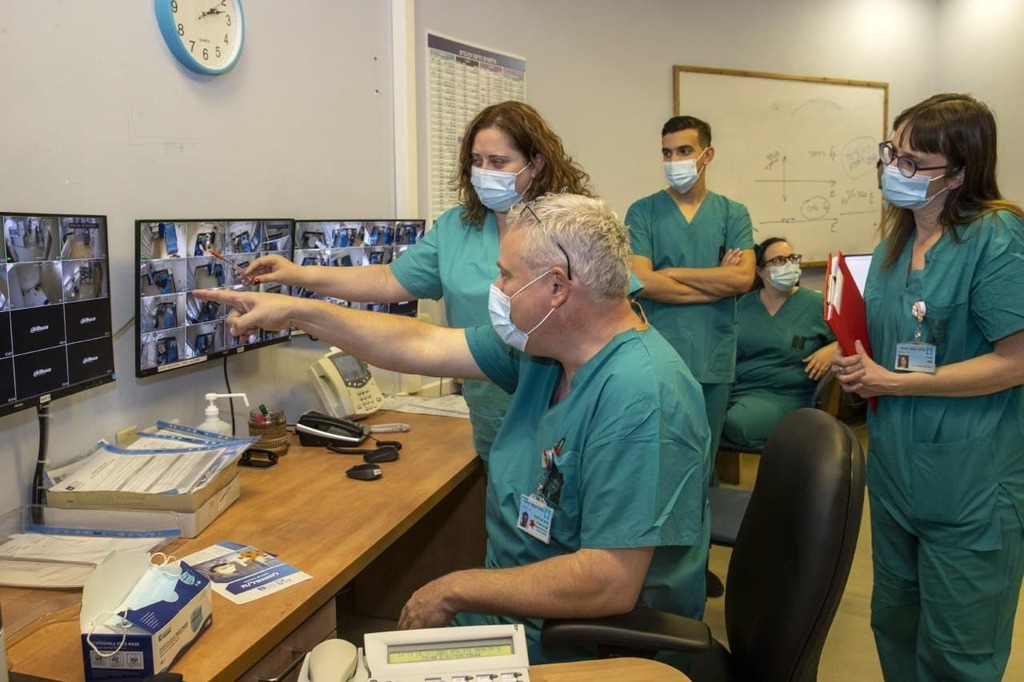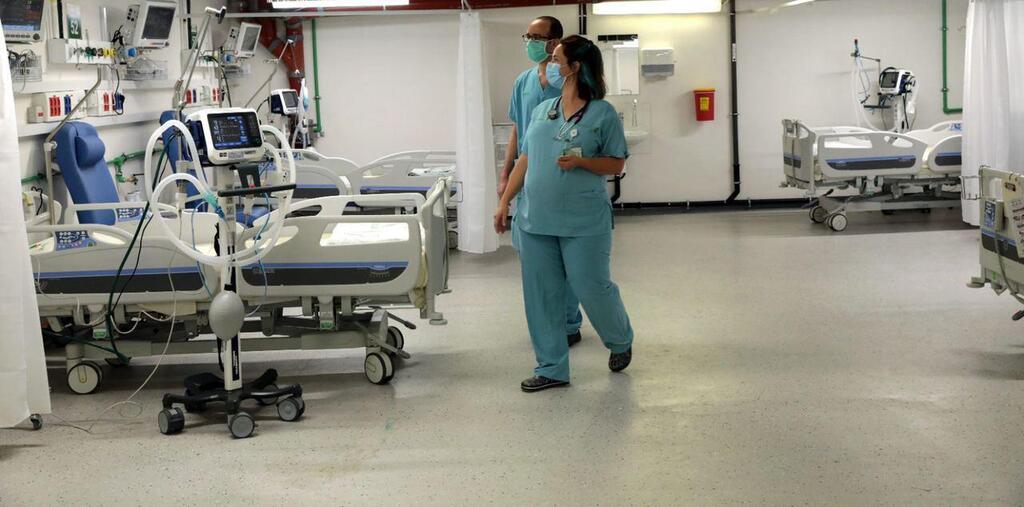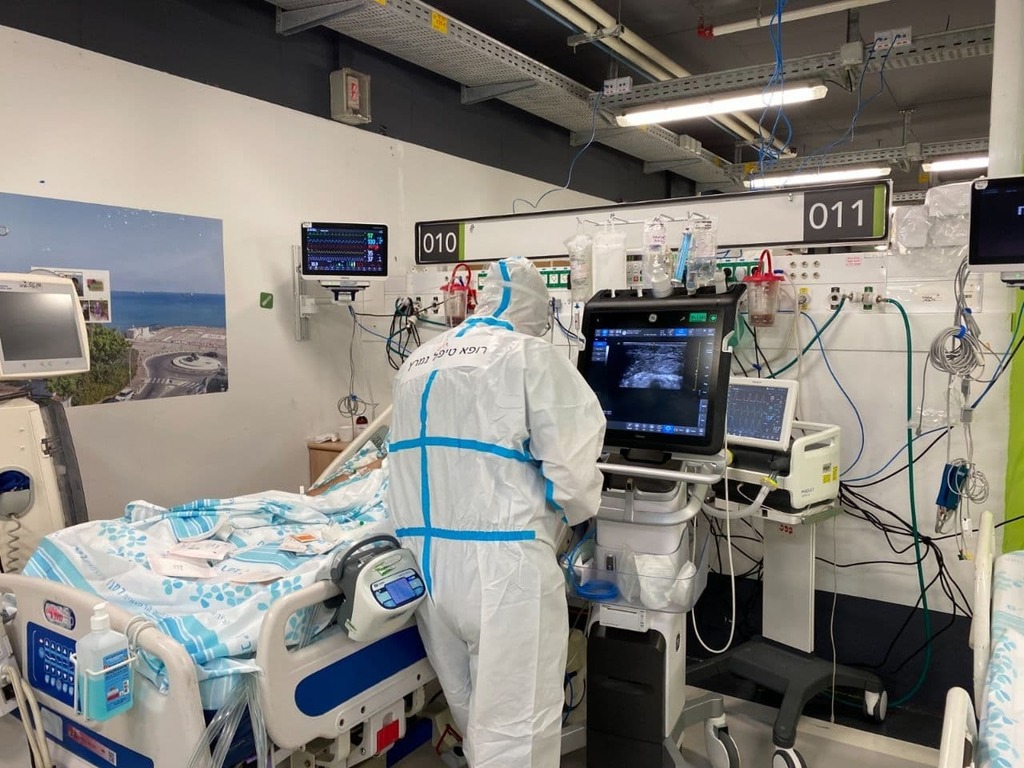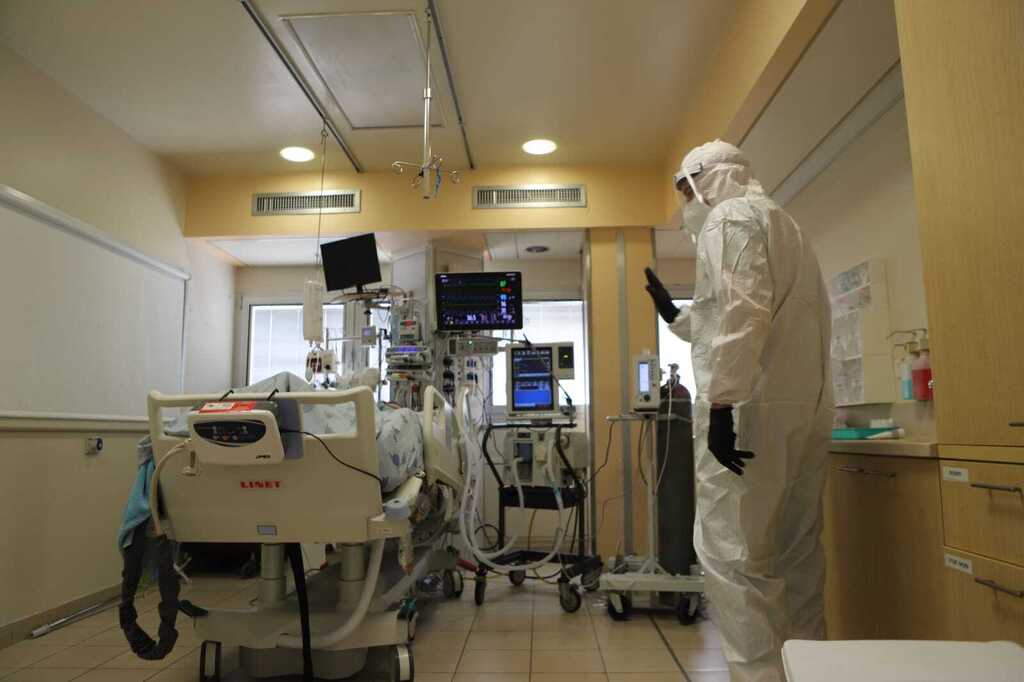Alongside the continuing rise in coronavirus infections and deaths, Israel's hospitals are on the frontline of the pandemic, with their efforts hampered by overcrowded wards, overworked staff and a lack of manpower due to quarantine and infections.
According to the Health Ministry, 1,033 serious coronavirus patients are hospitalized, with 304 in serious condition and 244 connected to ventilators.
For comparison, the highest number of serious cases in the second infection wave was 898.
"The situation is difficult," said Prof. Zvi Friedlander, the head of internal medicine at Hadassah Medical Center.
"We are opening more and more coronavirus wards. Over the weekend, my ward was turned into one. The number of hospitalizations is approaching the peak of the second wave and now stands at more than 130. During the last wave, we reached 150 but now that number just keeps rising. Many of the patients are in serious condition and unfortunately, some of them die too."
Friedlander said that unlike the first wave of the virus, which saw a rather low number of hospitalizations despite initial fears, the second and third waves have seen corresponding surges in hospitalizations, with many of the patients in serious condition.
4 View gallery


Prof. Zvi Friedlander with the staff of his coronavirus ward at Hadassah Medical Center, Ein Kerem
(Photo: Amit Shabi)
"It is toughest on the medical interns," he said. "People with families and children who are forced to work so hard and are so often unable to help their patients. It is a heavy burden."
Dr. Bibiana Hazan, director of the Infectious Diseases Unit at Emek Medical Center in Afula, says that the rise in hospitalized coronavirus patients is constantly in flux.
"The number of patients and those that are connected to ventilators changes all the time," she said.
"Both of our dedicated wards are full. Alongside the challenging treatment of serious patients, of course, there is also the treatment of other patients who are doing better but who also require close attention as their condition can change very rapidly."
Hazan said that the contagion rate in the local area is not only affecting the number of patients, but the staff as well.
"We are in an infection hotspot and many of our staff live here. We are experiencing serious morbidity among staff not only within the hospital, but outside it as well," she said.
"We are short many workers because they are either in quarantine or have actually tested positive for coronavirus. We have 180 staff in quarantine, which is insane. Six to seven percent of our staff are in isolation and it keeps growing every day."
Hazan said that due to the number of patients, the hospital is considering whether to open a third dedicated coronavirus ward.
In addition, she said, the hospital has asked the Health Ministry to transfer patients to medical centers in central Israel, which are less overburdened.
"The periphery is always far more understaffed than the center, and now the load is enormous," she said.
4 View gallery


The underground coronavirus ward at Rabin Medical Center Petah Tikva
(Photo: Rabin Medical Center)
But Prof. Alon Grossman, head of the underground coronavirus ward at Rabin Medical Center in Petah Tikva, near Tel Aviv, said that the past week has also been particularly difficult for the hospital.
"Rabin Medical Center has the most coronavirus patients outside of Jerusalem," he said. "We received over 100 patients in past week along, with many of them succumbing to the disease."
Grossman also highlighted the difference in the number of patients for the three waves of the infection.
"During the second wave, we were the dedicated virus ward and throughout it all, we never even came close to the number we are seeing now," he said.



